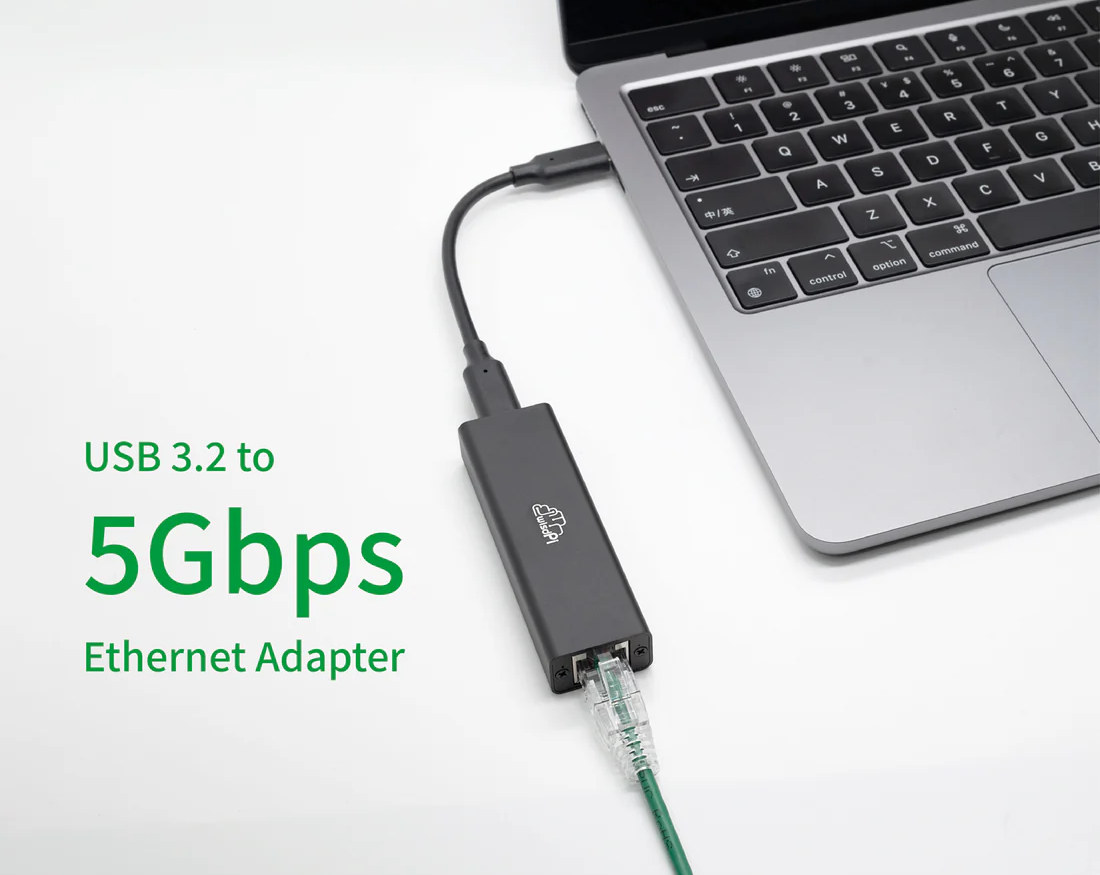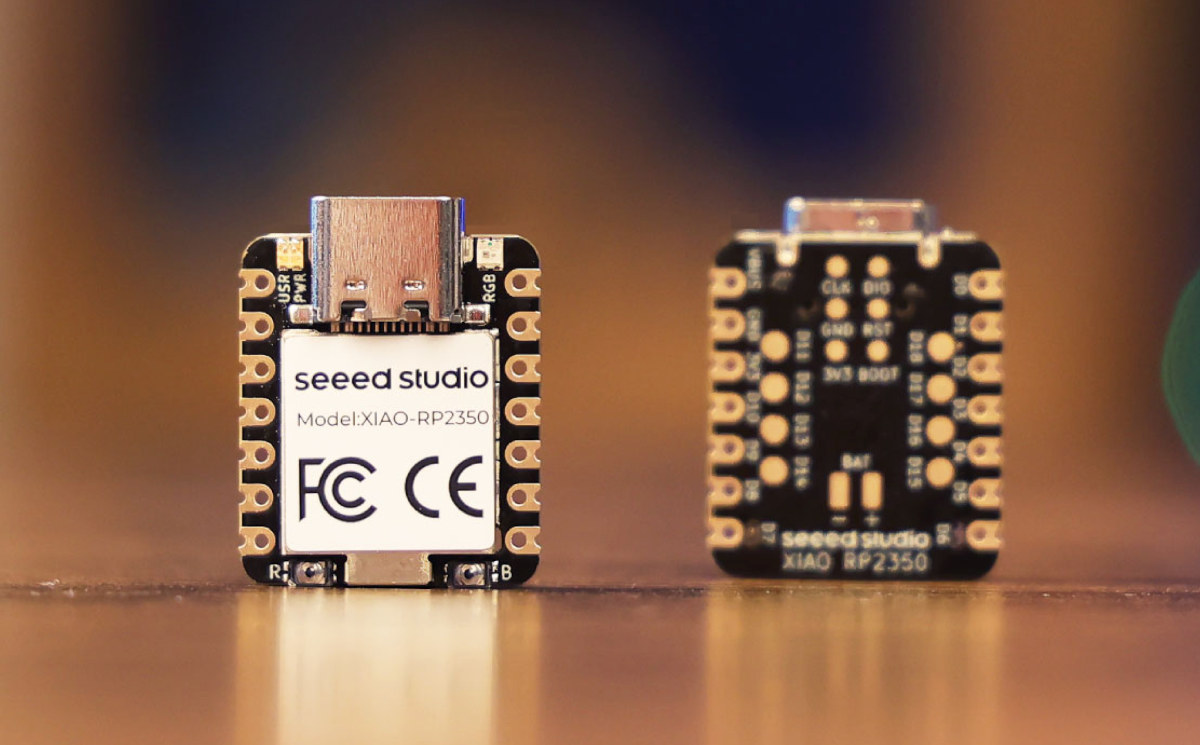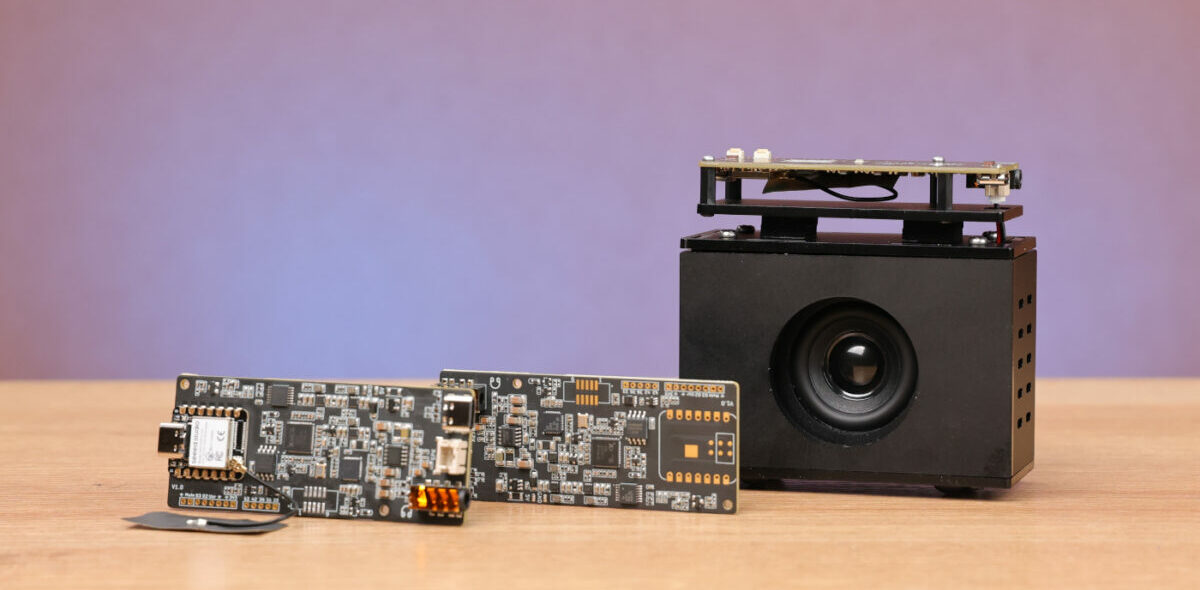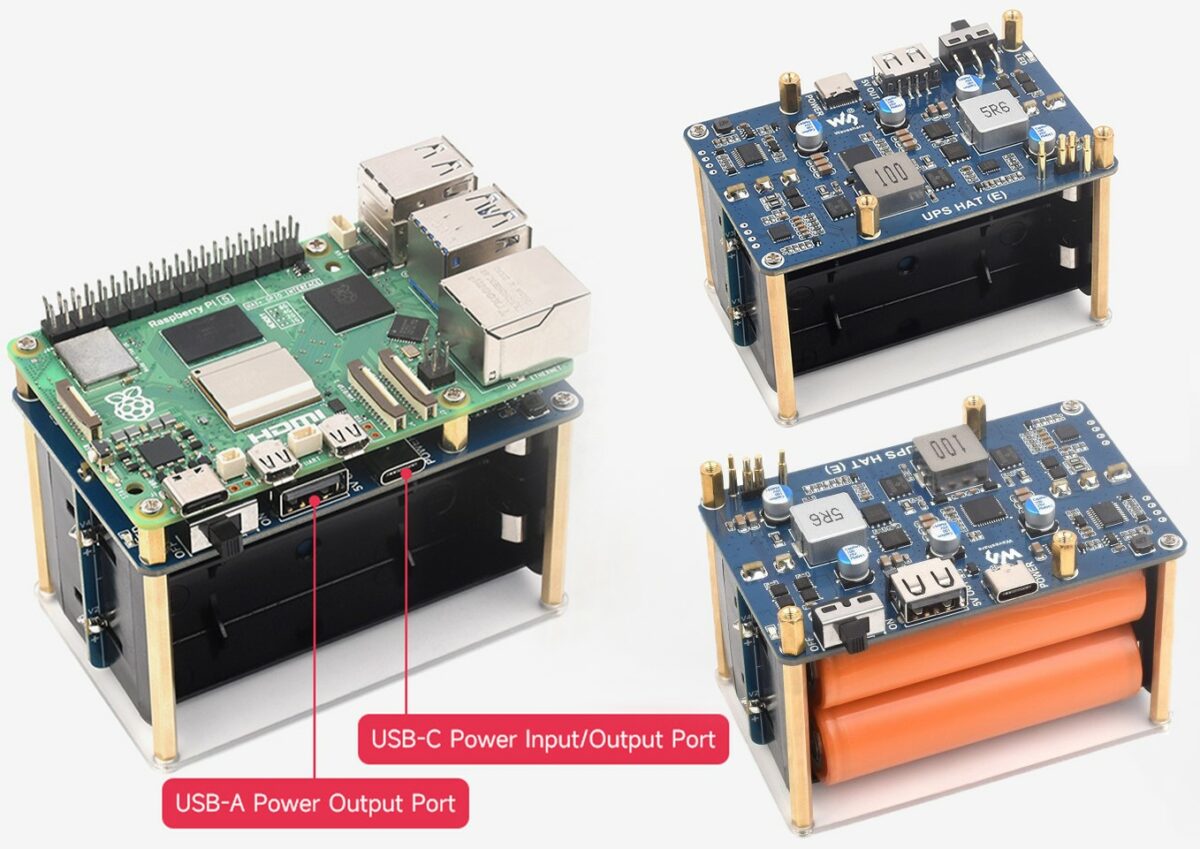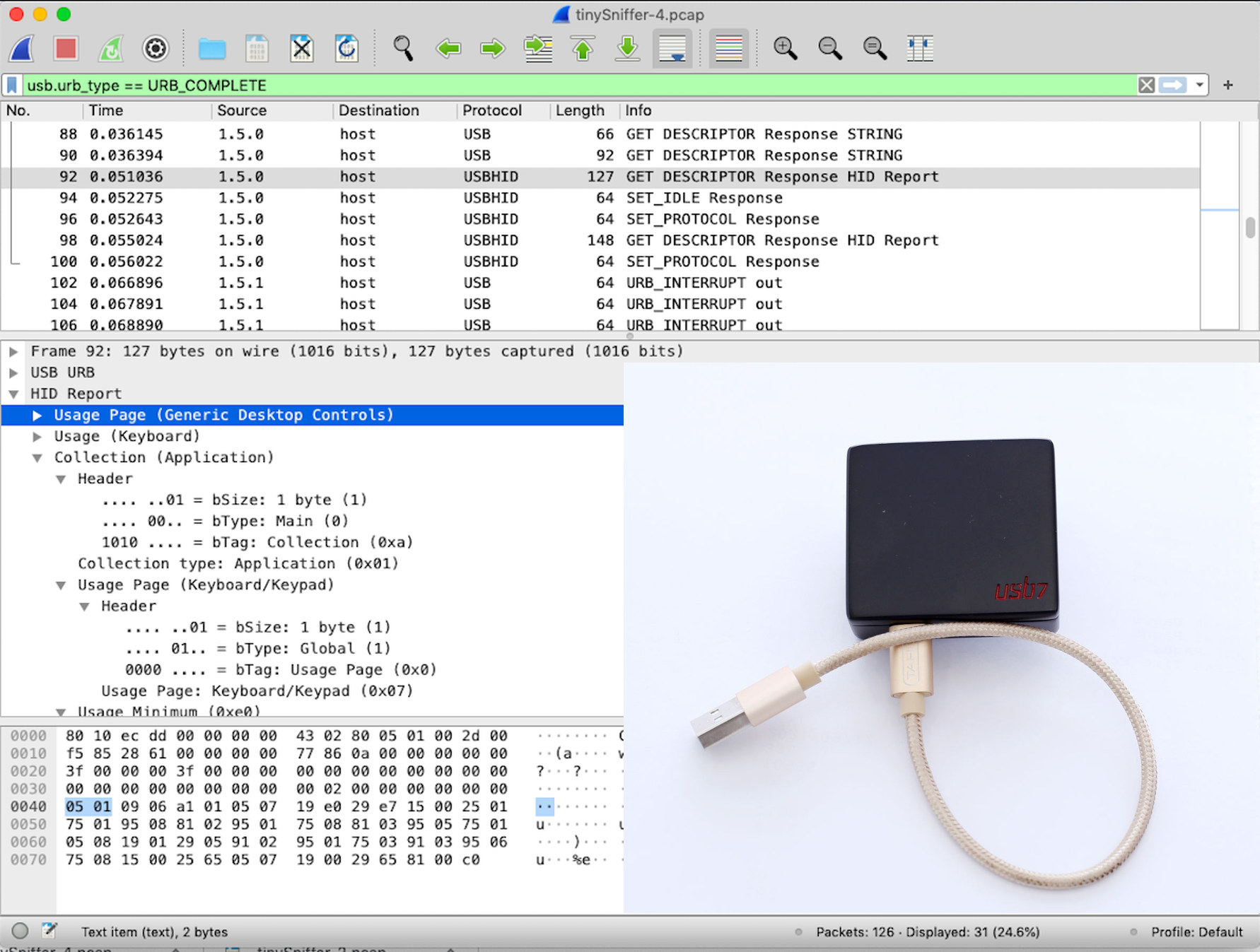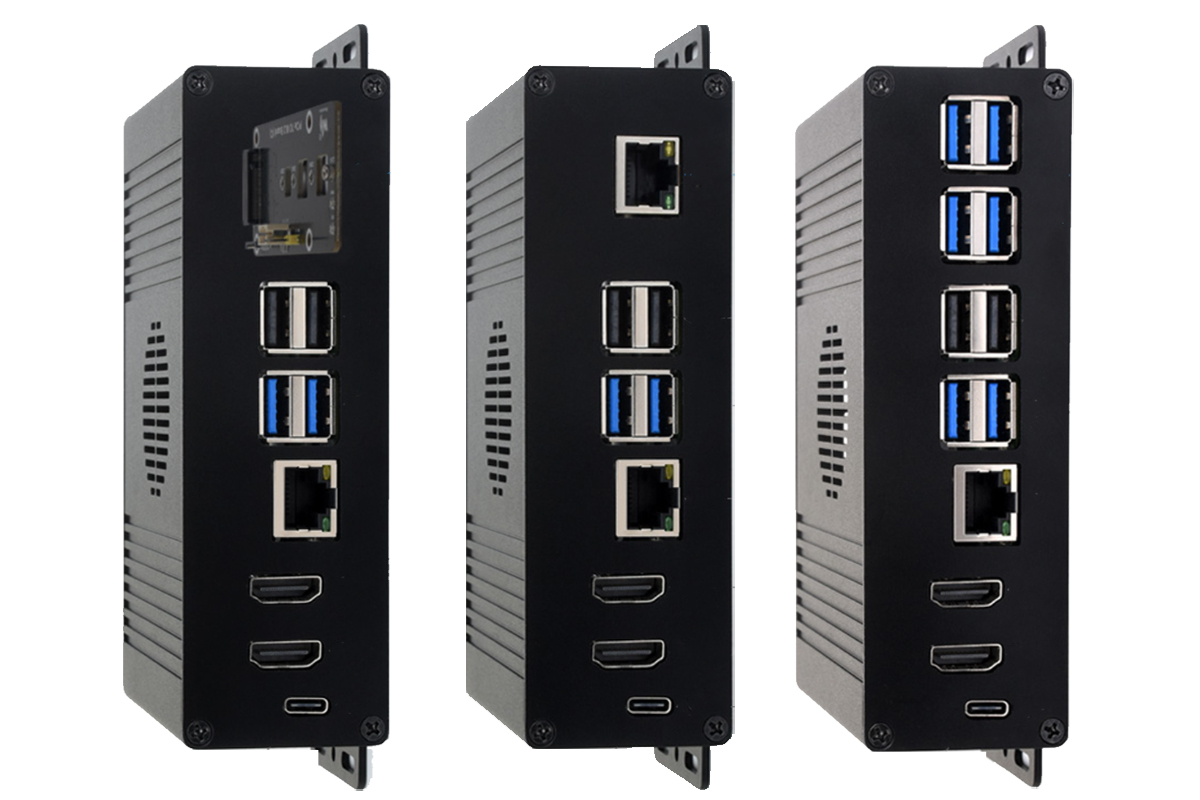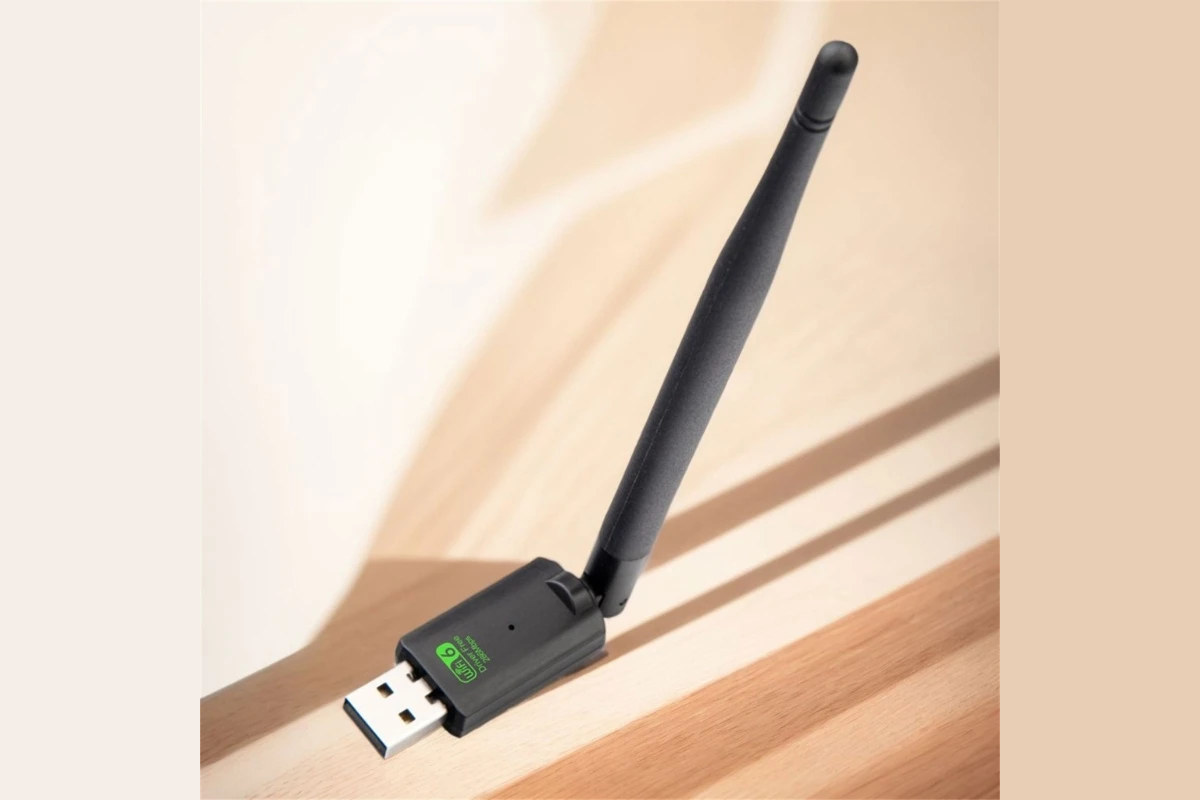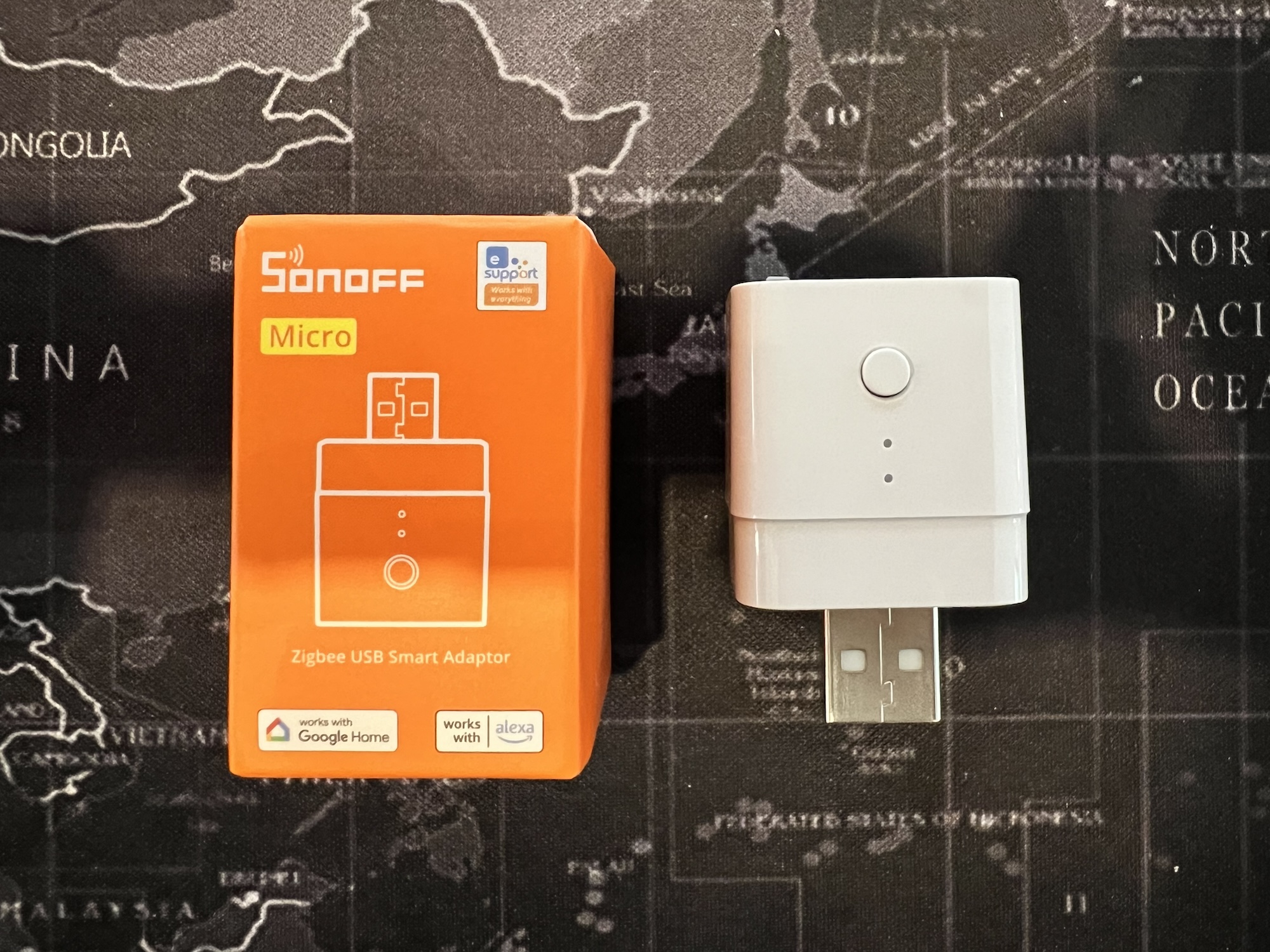WisdPi WP-UT5 is the first Realtek RTL8157 5Gbps Ethernet (5GbE) to USB 3.2 adapter to make it to market, following the launch of Realtek RTL8126 5Gbps Ethernet PCIe and M.2 adapters last June, and the announcement for both the RTL8126 and RTL8157 chips at Computer 2023 last year. While the RTL8126 dongles and cards are fairly cheap at around $16 on average and as low as $12, the WisdPi WP-UT5 is sold at a premium for about $35 on AliExpress, but we can expect the price to down come as more companies introduce 5GbE to USB 3.2 adapters. For reference, the 2.5GbE variants based on RTL8156(BG) can be had for about $20 on Amazon. WisdPi WP-UT5 specifications: Chip – Realtek RTL8157 USB USB 3.2 Type-C female port A-C and C-C cables to support hosts with USB Type-C or Type-A ports Ethernet 10/10/100/2500/5000 Mbps Ethernet Supports 5G Lite (2.5Gbps data rate) […]
XIAO RP2350 is a tiny USB-C board based on Raspberry Pi RP2350 MCU
The XIAO RP2350 is an upgrade to Seeed Studio’s XIAO RP2040 board with a more powerful Raspberry Pi RP2350 dual-core Cortex-M33 or dual-core RISC-V microcontroller found in the just-launched Raspberry Pi Pico 2 board. The new Raspberry Pi RP2350 USB-C board has the same form factor but adds eight more GPIOs on the bottom with pads for a total of 19 GPIOs, and we lose two LEDs for serial port connectivity. Most people will still be fine with the XIAO RP2040, but if you need a more powerful microcontroller, extra memory, a few extra GPIOs, and built-in security, then the XIAO RP2350 will be an improvement. XIAO RP2350 specifications: Microcontroller – Raspberry Pi RP2350 MCU CPU – Dual-core Arm Cortex-M33 processor @ 150MHz (Note: again RISC-V is not mentioned at all by Seeed Studio, like for the Cytron MOTION 2350 Pro board) Memory – 520KB internal RAM 8KB OTP Storage […]
ReSpeaker Lite Voice Assistant Kit combines XMOS XU-316 and ESP32-S3 for advanced voice processing, Home Assistant integration
Seeed Studio’s ReSpeaker Lite Series includes the ReSpeaker Lite 2-Mic Array and Voice Assistant Kit, featuring the XMOS XU-316 AI sound chip for advanced voice processing and integration with Home Assistant via ESPHome. It’s perfect for smart home control with far-field voice capture and noise cancellation. The kit combines the ReSpeaker Lite dual-microphone array with the XIAO ESP32S3 module for voice recognition, noise reduction, and processing. It supports WiFi, BLE 5.0, and has a 2.4GHz rod antenna. It also offers I2S and USB connectivity for use with microcontrollers and SBCs, making it ideal for smart voice assistants and home automation. We’ve previously covered the NXP i.MX RT106F & RT106A/L, where NXP i.MX RT106A can run voice assistant software with features like acoustic echo cancellation, ambient noise reduction, beamforming, barge-in, and playback processing. We’ve also written about other ReSpeaker boards, such as the ReSpeaker 4-Mic Array board, ReSpeaker Core board, and […]
Waveshare UPS HAT (E) for Raspberry Pi 5/4/3B+ takes four 21700 Lithium batteries, supports USB PD 3.0
The Waveshare UPS HAT (E) is a UPS expansion board for Raspberry Pi 5/4B/3B+ that supports four 21700 Lithium batteries and includes a battery fuel gauge IC for monitoring voltage, current, and capacity. The USB Type-C port is compliant with the PD 3.0 standard and allows for 40W fast bi-directional charging, and a high-power buck chip provides a 5V/6A output. Additionally, it supports I2C for real-time status updates. Previously, we wrote about the wider SupTronics Raspberry Pi 5 UPS HAT, which supports four 18650 batteries and delivers up to 5V with a higher current output of 5A. This HAT has no Type-C support and uses a DC jack and XH2.54 connector for 6V-18V input. Feel free to check it out if you’re interested in this product. Waveshare UPS HAT (E) specifications: Compatibility – Raspberry Pi 5 / 4B / 3B+ USB Interfaces USB Type-C Input/Output – Supports multiple voltage levels […]
tinySniffer WiFi-connected USB sniffer is based on NanoPi NEO Air SBC
TinySniffer is a USB sniffer based on the Allwinner H3-powered NanoPi Neo Air SBC, designed to capture USB 1.x and 2.0 packets remotely, and whose captured data is compatible with the popular Wireshark packet analyzer tool. Wireshark can already be used to capture USB packets on its own and I reverse-engineered a USB capture video solution that way in the past, but this method has some limitations, for instance, it does not capture some low-level USB packets, in which case a hardware USB sniffer like Total Phase Beagle USB, the PhyWhisperer USB, or the tinySniffer is required. The micro USB OTG port of the NanoPi NEO Air SBC is connected to the host computer and the company added a USB 2.0 Type-A port connected to the USB interface on the GPIO header to connect a device under test such as a USB keyboard, a USB Ethernet dongle, a USB printer, […]
Waveshare Pi5 Module BOX is a configurable mini computer kit for the Raspberry Pi 5
Waveshare Pi5 Module BOX is a multi-functional mini-computer kit designed for the Raspberry Pi 5. The housing of this kit is made from aluminum alloy and Waveshare lists three variants of this kit, the first one is the Pi5 Module BOX-A (PCIe to Gigabit Ethernet), Pi5 Module BOX-B (PCIe to 4-ch USB3.2 Gen1), and Pi5 Module BOX-C (PCIe to M.2 interface). The kit looks very similar to the Waveshare Jetson Nano-powered mini-computer or the ODYSSEY-X86J4105 SBC with a case that we have reviewed previously, there was also this metal enclosure for the Raspberry Pi Compute Module 4 that we have written about, feel free to check that out if you are interested in some similar products. Waveshare Pi5 Module BOX specifications Compatibility – Designed for Raspberry Pi 5 (not included) Case Material – Aluminum alloy PCIe Adapter Board Options: Pi5 Module BOX-A – PCIe to Gigabit Ethernet port Pi5 Module BOX-B […]
AIC8800-based WiFi 6 AX300 USB adapter sells for less than $3
Adding networking capabilities to a computer or SBC has never been cheaper, as we’ve just written about a $12 M.2 RTL8126 5GbE module, and now I’ve come across a WiFi 6 USB adapter based on AIC8800 chipset that sells for under $3 on Aliexpress. I found out about it after we published an article about the Luckfox Pico Ultra W SBC that comes with a 2.4 GHz WiFi 6 and Bluetooth 5.2 module that happens to be based on an AIC8800DC module. Upon further investigation, I discovered some ultra-cheap WiFi 6 USB dongles were available, but with some caveats such as the lack of 5 GHz support and a speed limited to 300 Mbps. But it can still be interesting, so let’s find out. Specifications: Chipset – AICSemi AIC8800 WiFi – 2.4 GHz 802.11ax WiFi 6 up to 286.8 Mbps Tx power – 20dBm Features – MU-MIMO, OFDMA Operating modes […]
SONOFF ZBMicro Review – A Micro Zigbee USB Smart Adapter tested with eWelink and Home Assistant
We’ve just published the review of the SONOFF Zigbee Bridge Ultra, and as promised the next one will be the SONOFF Micro Zigbee USB Smart Adapter (ZBMicro for short). When we first received the device we wondered what improvements could be made beyond the first Wi-Fi version as it’s so small. However, after using it for a while, we found it to be a pretty good product. Besides functioning as a smart USB switch for turning devices on and off, it supports fast charging, data transfers, and can act as a Zigbee router. Additionally, it can be used with other platforms that adhere to the Zigbee 3.0 standard. From our market observations, competing devices similar to the ZBMicro lack features like fast charging or switching capabilities, making the SONOFF USB adapter more appealing compared to competitors at a similar price point. Compared to its predecessor (WiFi version), the ZBMicro has […]


